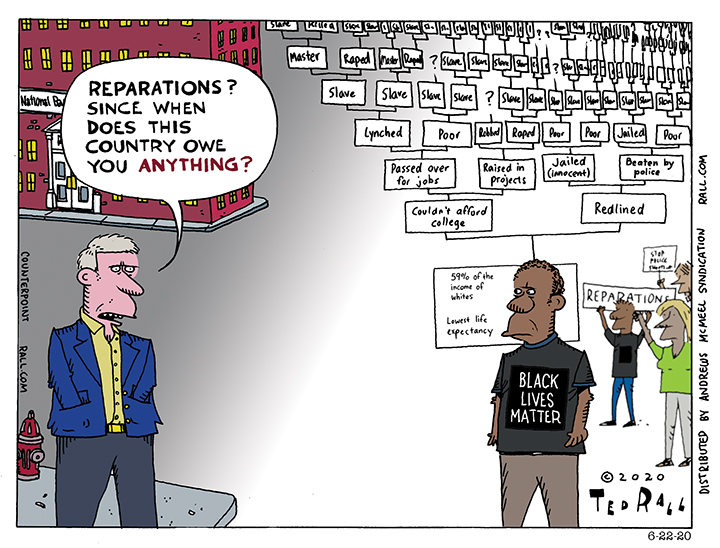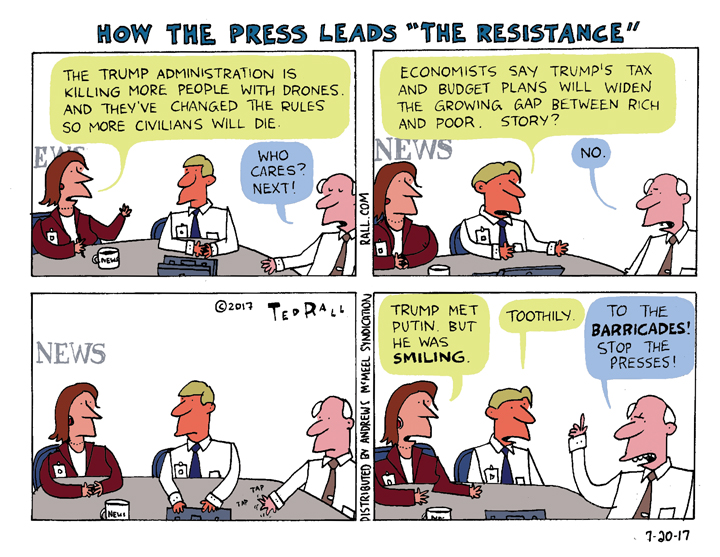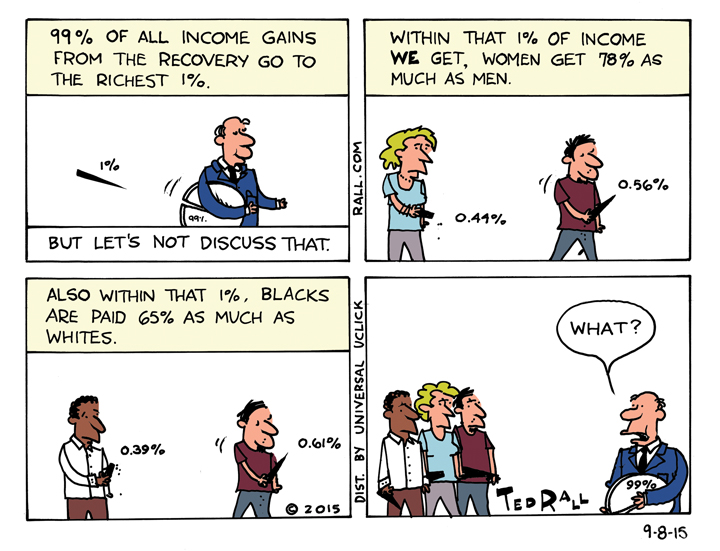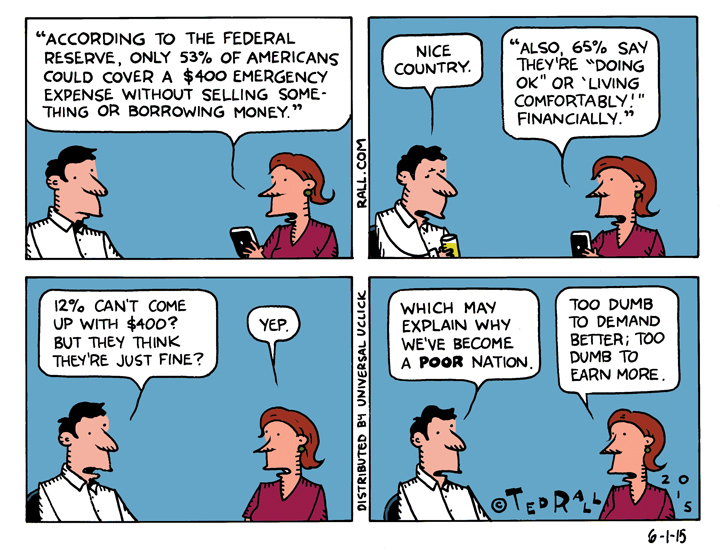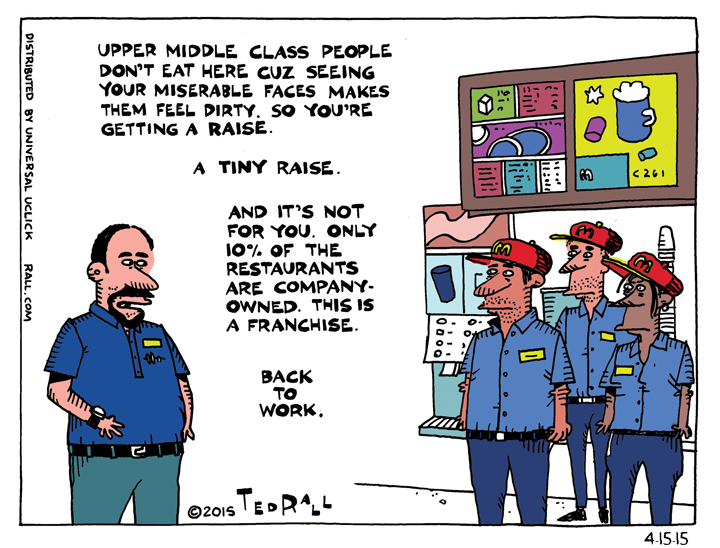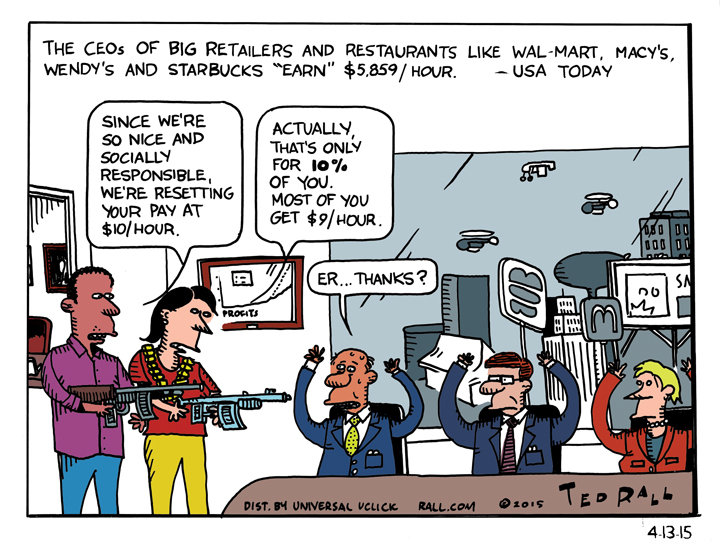The movement against modern policing has renewed the call for reparations to descendants of slaves.
Broke? Declare Yourself a Church and Burn
After a devastating fire laid waste to much of the Cathedral of Notre Dame in Paris, three spectacularly wealthy French industrial families pledged 700 million euros to re-build the iconic structure. It was a generous gesture. But it was disconcerting that purse strings would open so quickly to repair a damaged building while so many actual living breathing human beings in France were suffering that the so-called “yellow vest movement” was rioting in the streets of Paris just a few weeks earlier.
SYNDICATED COLUMN: Conservatism with a Heart? It’s Called Socialism

American conservatives are staring down the barrel of a future that looks increasingly bleak for them due to two major demographic shifts: the country is becoming more ethnically diverse, and younger voters – Generation Xers, Millennials, and presumably whoever comes next – are left cold or even repelled by the Republican Party’s Christian evangelical base and “social issues,” i.e. its obsession over who everyone has sex with. Anticipating their imminent irrelevance, some on the right say it’s time to reboot conservatism by bringing it more in line with the increasingly tolerant tone of most Americans on social issues, and by addressing their economic concerns.
One rightist getting attention these days is Arthur Brooks, president of the American Enterprise Institute, the conservative think tank. He’s out pimping a new book, “The Conservative Heart: How to Build a Fairer, Happier, and More Prosperous America,” which “shares his insights as to how conservatives can reach skeptical voters, smash stereotypes about conservatives and recast the political playing field,” according to The Washington Post.
It’s an interesting read. So are Brooks’ interviews to promote it. But the reason it’s interesting probably wouldn’t please him; what makes the current “conservative reform movement” worth knowing about is that it reaches the very heights of the human capacity for self-delusion.
At its core, conservatism is an ideology dedicated to the status quo. As such, it reflexively resists suggestions that the system is less than perfect, that things could be better, that the leadership caste isn’t deserving, or that there is inherent unfairness or injustice in the current state of affairs. The main thing about conservatism is, it doesn’t have a heart. To conservatives, and I know many of them, fail succeed ought to blame themselves – too lazy, too dumb – rather than structural impediments like racism or endemic poverty.
Parenthetically, the one point even my smartest conservative friends and acquaintances can’t refute is inheritance – how can capitalism be fair if Donald Trump starts his life worth millions, and you were an abandoned crack baby?
Conservatives trying to make their message more palatable to the country furious about the depredations of the top 1%, who have stolen 99% of national income in recent years, are faced with a set of options, none of which are likely to get them where they want to be, beloved by the electorate.
They can continue to defend big business and its prerogatives, and spin that policy with their traditional “a rising tide lifts all boats” meme. The problem there is, no one believes in trickle-down anymore.
Alternatively, they can embrace a new set of priorities and policies, which put ordinary American workers first. No more NAFTAs, no outsourcing, higher wages, protect the ability to unionize. But then, you’re not really conservative anymore. Even worse, you’ve abandoned your base of support, big business, in order to court a new constituency that will never trust you as much as liberals and progressives.
Boiled down to its essentials, the argument of would-be conservative reformers like Brooks is that it sure would be swell if capitalism could be made fairer. But the thing about capitalism is that unfairness isn’t an unfortunate side effect of this particular economic system. It’s a core feature.
Capitalism without unfairness and built-in inequality isn’t capitalism; it’s socialism. You don’t have to be Karl Marx to have been able to personally observe the tendency of power and money to aggregate into fewer and fewer hands over time, what we call monopolization, and to leverage those advantages in order to gather an even greater share.
Brooks tries to obscure this in an interview with the Dianne Rehm show on NPR. “About 2% of the American public considers income inequality, per se, to be the biggest economic problem that we have in America,” Brooks said. “Everybody believes, including President Obama because we have discussed this, believes that opportunity inequality is a real crisis. So what I would recommend to Democratic office holders and aspirants to higher offices that they pivot from their emphasis on income inequality, which is about a 2% issue, to an opportunity inequality, which is about 100% issue and then we can have a realistic competition of ideas between right and left on how to increase opportunity and mobility in America.”
On this point, I think most people can agree with Brooks: the core of the problem is a lack of class mobility. At this point in US history, it’s harder for someone born poor to get ahead and break into the middle class or upper class than it is in Europe, a continent that many of our grandparents and great-great-grandparents fled due to lack of opportunity.
So how do conservative reformers propose to give the chance to get ahead to everyone?
Brooks: “And the answer is not just the redistribution of income, although that has to happen, such that we can have goods and services for the poor. The answer is for — to find better policies so people can earn their success through education reform, through serious cultural conversations about the predicates of success.”
I give Brooks credit: he admits that “redistribution of income…has to happen.” That is for damn sure.
Education reform? No, that’s never going to do it. Nor will right-wingers agree to the federalization of education that would be necessary to ensure that a kid in Compton went to a school as good as one in Bel Air.
Cultural conversations? Don’t make me laugh.
Redistribution of income. And wealth. That’s the ticket to solving income inequality. When the time comes, however, I’m going to trust my local Communists – who have been pushing for and thinking about it forever – a hell of a lot more than the reform conservatives who think Ronald Reagan, who trashed the social safety net, was some kind of hero.
(Ted Rall, syndicated writer and the cartoonist for The Los Angeles Times, is the author of the book “Snowden,” the biography of the NSA whistleblower, to be published August 18th. Want to support independent journalism? You can subscribe to Ted Rall at Beacon.)
COPYRIGHT 2015 TED RALL, DISTRIBUTED BY CREATORS.COM
SYNDICATED COLUMN: Welcome to the Machine, President Sanders
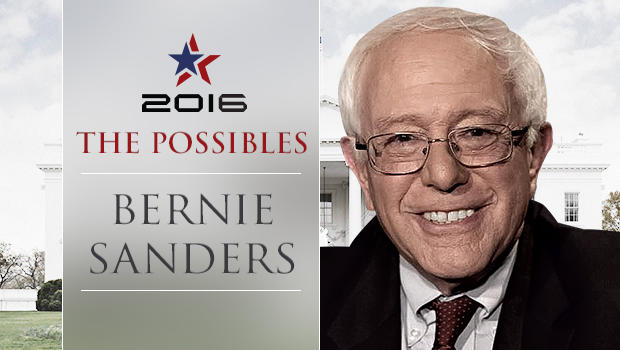
Rising in the polls, Bernie Sanders is already posing a credible threat to Hillary in the key primary state of New Hampshire. Having gone in one month from left-wing curiosity to serious contender, his confidence is soaring. He has gone from promoting himself as a mere symbolic tool to push Clinton to the left to predicting that he will win the Democratic nomination for president, and ultimately the presidency itself.
January 20, 2017.
“Welcome to the White House, Mr. President-Elec…I’m sorry—Mr. President. Hard habit to break. This way, sir — this is the Oval Office. If there’s anything you need, just let me know, sir.”
“I can’t believe I’m here.”
“You’ve made history, President Sanders. First socialist president! Very exciting.”
“Thank you, Henry.”
“Might I add also, sir, that was a very inspiring speech.”
“Thank you. So—what’s in store for day one of the Sanders Administration?”
“On your desk is a note from outgoing President Obama, as well as a stack of congratulatory messages from world leaders. You’ll want to get back to Putin, Pope Francis and Hollande right away, what with the situation in the Baltics and all.”
“Any meetings? Briefings?”
“Inauguration Day is traditionally a light schedule, so that you and the First Lady have time to prepare for tonight’s balls. So here’s what we’ve got scheduled for you for today:
“3:00: Meeting with a dozen CEOs of major corporations. You’ll have to reassure them that you’re a reasonable, mainstream Democrat, not the crazy-eyed barracuda-toothed left-winger you campaigned as. Make ‘em comfy, or else the markets’ll tank when they open Monday morning.
“4:00: National security briefing. Baltics, Seychelles, Golan Heights at the top of the agenda. You already met the Joint Chiefs during the Transition, but they’re going to want to hear that you’re not rocking the boat with any major changes in foreign policy. Our allies need to know that U.S. policy is consistent, that we’ll honor our treaty obligations and ongoing security arrangements. Iraq and Afghanistan assume that ‘total withdrawal’ stuff was just campaign rhetoric; you’re going to have to confirm that.
“4:40: Treasury Secretary Krugman wants to bend your ear about that minimum wage increase you promised.”
“What does Yellen think?”
“The Fed won’t sign on to any raise higher than $15 per hour, scaled up no sooner than 2023.”
“But that’s below the inflation rate. People need relief; the economy needs stimulus.”
“That’s true, Mr. President, but the bond market—”
“I know, I know, I read Clinton. He wasn’t president of the United States; he was the president of the bond market. Fine. Reschedule my 4:40 with Paul…add a few supply-siders into the mix. For balance.”
“Yes, sir.”
“Anything else?”
“The daily 5 o’clock in the Situation Room, sir. CIA is 70% sure they have Abu Ghanar in their sites. They’re going to want a UAV termination authorization tonight. We could move that up to 4:40 to let you and the First Lady relax before dinner, or you could meet Mr. and Mrs. Springsteen before their performance.”
“Ghanar?”
“The new #2 of the Islamic State of Iraq, Syria and Jordan (ISISJ).”
“(Sigh) okay. Oh, look at the time.”
“This way, sir.”
—
“Gentlemen! Thank you for coming today. It’s nice to finally meet you. Mr. Schmidt, an honor to meet you. Google is doing great things. Mr. McMillon — I appreciate the recent moves you’ve made to help workers…I won’t hold Wal-Mart’s backing of Senator Clinton against you. Now, if you don’t mind, let’s get right to it. As I said during my campaign, the economy is broken. It’s harder than ever for hard-working people to make ends meet, let alone get ahead. The top 1% are earning 99% of new wealth. Income inequality and long-term unemployment are soaring. It’s not just wrong — it’s bad for the overall economy because it reduces spending and contributes to the imbalance of trade. So it will come as little surprise to you that I’m going to take steps to increase fairness. Yes, Mr. Cook?”
“First, I’d like to offer you my congratulations. Your victory is inspiring. However, I’d like to take this opportunity to urge you to support the proposed Trans-Global Trade Agreement. TGTA is absolutely essential to the continued health of the tech sector. Second…”
(Ted Rall, syndicated writer and the cartoonist for The Los Angeles Times, is the author of the upcoming book “Snowden,” the first biography of NSA whistleblower Edward J. Snowden. It is in graphic novel form. You can subscribe to Ted Rall at Beacon.)
COPYRIGHT 2015 TED RALL, DISTRIBUTED BY CREATORS.COM

